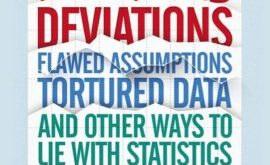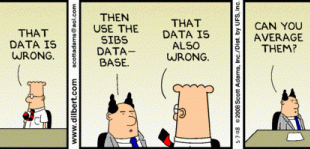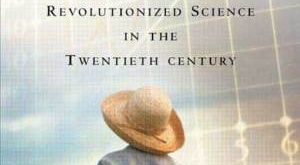Data clusters are everywhere, even in random data. Someone who looks for an explanation will inevitably find one, but a theory that fits a data cluster is not persuasive evidence. The found explanation needs to make sense, and it needs to be tested with uncontaminated data. Similarly, someone who fires enough bullets at enough targets is bound to hit one. A researcher who tests hundreds of theories is bound to find evidence supporting at least one. Such evidence is...
Read More »Empirical economics and statistical power
Empirical economics and statistical power How credible is empirical economics? Is empirical economics adequately powered? Many suspect that statistical power is routinely low in empirical economics. However, to date, there has been no large-scale survey of statistical power widely across empirical economics. The main objectives of this article are to fill this gap, investigate the implications of low power on the magnitude of likely bias and recommend...
Read More »Meta-analysis — nothing but an exercise in mega-silliness
Meta-analysis — nothing but an exercise in mega-silliness Including all relevant material – good, bad, and indifferent – in meta-analysis admits the subjective judgments that meta-analysis was designed to avoid. Several problems arise in meta-analysis: regressions are often non -linear; effects are often multivariate rather than univariate; coverage can be restricted; bad studies may be included; the data summarised may not be homogeneous; grouping...
Read More »On the non-applicability of statistical models
On the non-applicability of statistical models Eminent statistician David Salsburg is rightfully very critical of the way social scientists — including economists and econometricians — uncritically and without arguments have come to simply assume that they can apply probability distributions from statistical theory on their own area of research: We assume there is an abstract space of elementary things called ‘events’ … If a measure on the abstract space of...
Read More »Econometrics — still lacking valid ontological foundations
Econometrics — still lacking valid ontological foundations Important and far-reaching problems still beset regression analysis and econometrics — many of which basically is a result of unsustainable ontological views. Most econometricians have a nominalist-positivist view of science and models, according to which science can only deal with observable regularity patterns of a more or less lawlike kind. Only data matters and trying to (ontologically) go...
Read More »Linearity — a dangerous assumption
Linearity — a dangerous assumption [embedded content] Advertisements
Read More »P-hacking and data dredging
P-hacking and data dredging P-hacking refers to when you massage your data and analysis methods until your result reaches a statistically significant p-value. I will put it to you that in practice most p-hacking is not necessarily about hacking p-s but about dredging your data until your results fit a particular pattern. That may be something you predicted but didn’t find or could even just be some chance finding that looked interesting and is amplified...
Read More »Time to abandon statistical significance
Time to abandon statistical significance We recommend dropping the NHST [null hypothesis significance testing] paradigm — and the p-value thresholds associated with it — as the default statistical paradigm for research, publication, and discovery in the biomedical and social sciences. Specifically, rather than allowing statistical signicance as determined by p < 0.05 (or some other statistical threshold) to serve as a lexicographic decision rule in...
Read More »Big Data — Poor Science
Big Data — Poor Science Almost everything we do these days leaves some kind of data trace in some computer system somewhere. When such data is aggregated into huge databases it is called “Big Data”. It is claimed social science will be transformed by the application of computer processing and Big Data. The argument is that social science has, historically, been “theory rich” and “data poor” and now we will be able to apply the methods of “real science” to...
Read More »‘Autonomy’ in econometics
The point of the discussion, of course, has to do with where Koopmans thinks we should look for “autonomous behaviour relations”. He appeals to experience but in a somewhat oblique manner. He refers to the Harvard barometer “to show that relationships between economic variables … not traced to underlying behaviour equations are unreliable as instruments for prediction” … His argument would have been more effectively put had he been able to give instances of relationships that...
Read More » Heterodox
Heterodox









